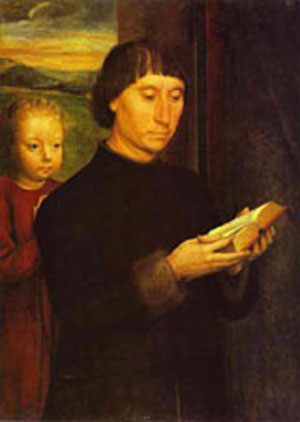One of the most powerful characteristics of the novel is its ability to take us into the mindset of another. Does that mean that novel writing is an inherently liberal enterprise? I started thinking about this while reading a recent column by the Daily Beast’s Michael Tomasky.
Tomasky was awarding Ohio Senator Rob Portman “one and a half cheers” for being the only sitting Republican senator to come out in favor of same sex marriage. Although many progressives are hailing his move as an important turning point, Tomasky is disappointed that Portman only changed his mind about the issue after learning that his own son is gay. Portman’s conversion led the liberal columnist to theorize about the difference between liberals and conservatives:
So good for him. But even so, I couldn’t help wondering: what if his son weren’t gay? Were that the case, we have no reason whatsoever to believe Portman would have taken this step. And this brings us to a difference, for my money the single most important difference, between liberals and conservatives: in general, conservatives have no social empathy. It shouldn’t take filial love and loyalty to bring a person to a position that he should reach via a simple combination of compassion and principle.
Musing on “what makes a person a liberal,” Tomasky thinks that the key element is
the ability to think beyond self-interest—to examine an issue through other people’s eyes, and to imagine such a thing as the common interest or common good. The obvious example from American history is civil rights. For your average Northern white person in 1963, it wasn’t so difficult to identify with the interests of the Southern black person. Millions of white Americans were thus “liberals” at that point in time, at least with regard to that issue. Whites were able to see the issue through black eyes, in a sense; most even saw that their own self-interest as Americans was bound up in Southern blacks’ self-interest. That meeting place of self-interest and another’s interest is exactly where the common good lives.
Tomasky believes that social empathy must be taught, which is where literature comes in. Here’s one last thought from his column:
Social empathy comes naturally to a small percentage of human beings (personally I think we’re almost all born that way, but most people, alas, start learning selfishness from an early age). Others have to learn and think their way there. And most people never bother. This is why there are fewer liberals than conservatives and always will be.
This is why literature needs to be encouraged and taught regularly and at all levels—not necessarily to produce liberals but to develop citizens who can understand multiple perspectives. In a multicultural society, this is critical.
The novel’s ability to get us to enter other minds made it an object of suspicion from the very beginning. After all, to know someone is the first step to sympathizing with him or her, with the result that 18th century English readers suddenly found themselves sympathizing with thieves (Moll Flanders), prostitutes (Roxanne), bastards (Tom Jones) and other disreputable characters. No wonder moralists preached against novels from the pulpit.
Nor has the suspicion vanished. The New Yorker recently had an article about how Russia has turned against one of its great 20th century novelists, Vladimir Nabokov, for having written Lolita. In the eyes of those who beat up the producer of a recent Russian stage production of Lolita and those who have been vandalizing the Nabokov museum, the author was promoting pedophilia by giving us the urbane and engaging Humbert Humbert.
I would just add to Tomasky’s formulation that empathy is not the only quality that a healthy society needs, just as identifying with characters is not the only aspect of the novel. After all, we are challenged, both in society and in books, to evaluate and judge the characters, and for that we must have core principles that we bring to bear. Such principles can be either liberal or conservative.
I regard novels as occasions for ethical, psychological and political debates–which is to say, I see them as a training ground for citizenship. Add this to the list of why they are vital to our lives.


